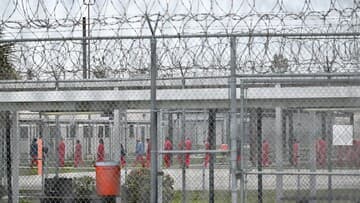The recent investigation by WIRED has unveiled a troubling trend within Immigration and Customs Enforcement (ICE) detention facilities, revealing a significant increase in medical emergencies among detainees. This spike raises critical questions about the adequacy of care provided in these facilities, particularly as the Biden administration continues to grapple with immigration policy in a polarized landscape.
Medical Crises Escalate in Detention Centers
As reported by WIRED, the data obtained from 10 major ICE detention centers indicates a distressing rise in serious medical incidents. Emergency calls from these facilities have surged, with over 400 calls logged and alarming reports of pregnancy complications, suicide attempts, and sexual abuse allegations. The sheer volume of these incidents suggests that the health care system for detainees is not just strained; it is failing.
Overcapacity and Indifference
ICE"s capacity has been pushed to its limits, with a 48 percent increase in the detained population, reaching over 59,000 individuals. This overcrowding exacerbates existing vulnerabilities and highlights a system that prioritizes enforcement over care. According to the National Immigration Detention Hotline, this environment fosters neglect, as detainees often struggle to receive timely medical attention.
Inadequate Medical Care for Vulnerable Populations
The treatment of pregnant detainees is particularly concerning. Research indicates that ICE"s own policies discourage the detention of pregnant individuals due to the associated health risks, yet enforcement practices have seemingly ignored these guidelines. According to the American Civil Liberties Union, a significant number of pregnant women are being detained without access to necessary prenatal care, leading to severe health complications.
Emergencies Ignored and Underreported
While the number of 911 calls may seem alarming, experts caution that the true scale of medical emergencies is likely much higher. Many incidents go unreported due to systemic barriers within the detention facilities, where detainees must navigate a convoluted process to seek medical attention. The reliance on written “sick call” requests often leads to delays that can be fatal. Dr. Marc Stern, a physician with experience in evaluating detention health care, highlights that “a 911 call usually means someone’s in a condition the facility can’t handle.”

Immigration: Biden and Democrats to unveil pathway to citizenship bill ...
Isolation and Access to Care
The geographical isolation of many ICE facilities further complicates access to urgent care. Facilities like the Stewart Detention Center in Georgia operate in areas with limited medical infrastructure, leading to prolonged emergency response times. As reported by Freedom for Immigrants, EMS crews often face delays of hours when responding to calls, leaving detainees in critical condition without necessary care.
Systemic Failures and Accountability
The inadequacies of medical care in ICE detention centers reflect broader systemic failures that prioritize enforcement over human rights. The dismantling of oversight bodies responsible for investigating abuses has left detainees vulnerable to neglect and violence, further complicating the path to accountability. As noted by Zain Lakhani from the Women’s Refugee Commission, the lack of meaningful oversight has resulted in a “black box of impunity” within the system.
Urgent Need for Reform
The alarming reports of medical neglect and rising emergencies in ICE facilities necessitate urgent reform. Advocates argue for a fundamental reevaluation of how detainees are treated, emphasizing the need for humane policies that prioritize health and safety over punitive measures. The conditions within ICE facilities not only violate basic human rights but also challenge the moral fabric of a nation that claims to uphold justice and dignity for all.

Sen. Dick Durbin criticizes Donald Trump in DNC convention speech

![[Video] Federal officers deploy sting balls and flash grenades at Whipple Building](/_next/image?url=%2Fapi%2Fimage%2Fthumbnails%2Fthumbnail-1768340555229-vhfcc-thumbnail.jpg&w=3840&q=75)
![[Video] Crowd-control weapons used in Minneapolis as anti-ICE protesters attack police vehicle](/_next/image?url=%2Fapi%2Fimage%2Fthumbnails%2Fthumbnail-1768336302231-akxf7s-thumbnail.jpg&w=3840&q=75)

![[Video] Protests erupt in Minneapolis after ICE detains teenager, multiple arrests made](/_next/image?url=%2Fapi%2Fimage%2Fthumbnails%2Fthumbnail-1768331835371-z9ylqg-thumbnail.jpg&w=3840&q=75)


![[Video] Gunfire between Iraqi security forces and Sadr militias in Baghdad](/_next/image?url=%2Fapi%2Fimage%2Fthumbnails%2Fthumbnail-1768343508874-4redb-thumbnail.jpg&w=3840&q=75)
